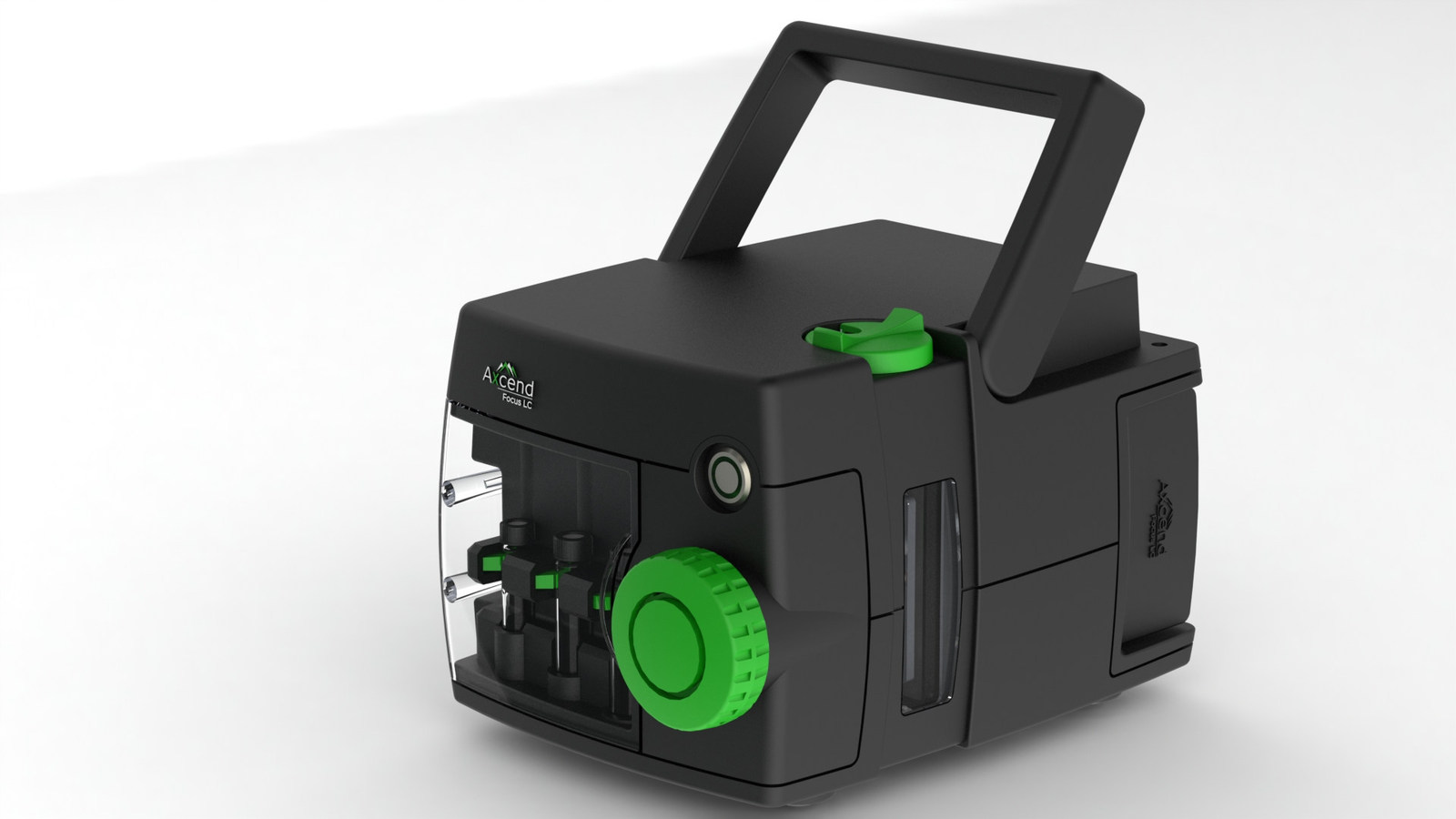The Top-Down Analytics team was impressed with the breadth of new products at the conference, introduced from small startups and multibillion-dollar market leaders alike. In this article, we highlight products introduced at Pittcon 2018 from startup companies. For a product to have been mentioned, the product launch must have taken place either during Pittcon 2018 or the two months prior. Alternatively, if the product launched was a prototype, the projected shipment date had to have been in 2018. Here are a selection of qualifying products introduced at Pittcon 2018:
The smartSENSE Stirbar
The smartSENSE Stirbar is manufactured by Milpitas, CA–based Gate Scientific. Even at first glance, it does not look like a standard stir bar. Although the size of one, the RFID-enabled smartSENSE Stirbar features an embedded microprocessor with a temperature sensor. Through RFID communication with the stirrer, the company’s wifi-enabled Precision Hotplate broadcasts the temperature of the solution being stirred to the user. The hotplate adjusts its heat setting to keep the solution’s temperature to user specification. Gate Scientific’s smartSENSE stirbar received the Gold Pittcon Today Award for Excellence in Instrumentation.
Zebra-GC
 Zebra Analytix, a spinoff from Virginia Tech, makes chip-scale Zebra-GC system. About a size of a cigar box, this miniature instruments communicate directly with the user’s computer or phone and have the ability to attach to an external carrier gas. The Zebra-GC is compatible with either a single- or multi-column chip(s) and features separate modules for preconcentrators, columns, and detectors. The company expects to begin shipments later in the year.
Zebra Analytix, a spinoff from Virginia Tech, makes chip-scale Zebra-GC system. About a size of a cigar box, this miniature instruments communicate directly with the user’s computer or phone and have the ability to attach to an external carrier gas. The Zebra-GC is compatible with either a single- or multi-column chip(s) and features separate modules for preconcentrators, columns, and detectors. The company expects to begin shipments later in the year.
Chrompix2
 Apix Analytics, a startup resulting from a collaboration between the French Alternative Energies and Atomic Energy Commission, and the California Institute of Technology, introduced Chrompix2, an ultrafast, modular gas analyzer. This plug-and-play GC system can integrate four analytical columns and four carrier gases, and simultaneously analyze four different samples. Chrompix2 measures 450 x 460 x 220 mm and weighs around 10 kg.
Apix Analytics, a startup resulting from a collaboration between the French Alternative Energies and Atomic Energy Commission, and the California Institute of Technology, introduced Chrompix2, an ultrafast, modular gas analyzer. This plug-and-play GC system can integrate four analytical columns and four carrier gases, and simultaneously analyze four different samples. Chrompix2 measures 450 x 460 x 220 mm and weighs around 10 kg.
Focus LC
 Last, but certainly not least, is the Focus LC from Brigham Young University–startup Axcend. This truly portable, battery-operated, mobile LC system measures 12 x 10 x 8 in and weighs just 12 lb. The system integrates two UV LED detectors and features an open-source interface right on the user’s mobile device or PC. Serial inventor Dr. Milton Lee of Brigham Young University, currently the chief science officer of Axcend, is behind the Focus LC’s technology. Dr. Lee is no stranger to successful entrepreneurial ventures; his intellectual property has served as the foundational basis for four startups, the most notable being Torion Technologies, acquired by PerkinElmer in 2015. Axcend’s Focus LC received the Bronze Pittcon Today Award for Excellence in Instrumentation.
Last, but certainly not least, is the Focus LC from Brigham Young University–startup Axcend. This truly portable, battery-operated, mobile LC system measures 12 x 10 x 8 in and weighs just 12 lb. The system integrates two UV LED detectors and features an open-source interface right on the user’s mobile device or PC. Serial inventor Dr. Milton Lee of Brigham Young University, currently the chief science officer of Axcend, is behind the Focus LC’s technology. Dr. Lee is no stranger to successful entrepreneurial ventures; his intellectual property has served as the foundational basis for four startups, the most notable being Torion Technologies, acquired by PerkinElmer in 2015. Axcend’s Focus LC received the Bronze Pittcon Today Award for Excellence in Instrumentation.
Startups are the engine driving innovation, as the passion involved in turning an idea into a commercial product is rarely found elsewhere. At TDA, our recognition of this fuels our enthusiasm for startups, and we eagerly anticipate following the progress of these innovative startup companies.





